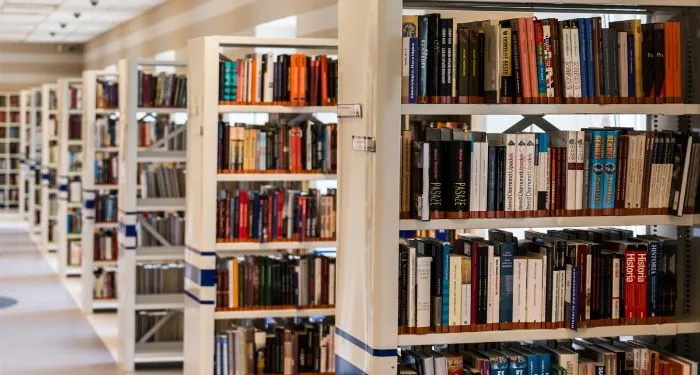
What are the Friends of the Library and How Can You Get Involved?
You may have seen your local Friends of the Library around, even without knowing who they were. You may have purchased used books from a sidewalk sale or donated to a fundraiser or signed a petition and not known that you were talking to volunteers from a local group fighting for your library. But what are these groups?
Friends of the Libraries are nonprofit groups that support libraries in their communities. They are run by volunteers and exist in the US, Australia, France, South Africa, and the UK.
The key thing to know is that Friends of Libraries groups are independent from the actual administration of the library. The groups are often filling gaps — gaps in funding, support, or awareness. Some groups were founded to save a local library from closing or losing its funding. But groups do a wide variety of work. They can:
- fundraise to make up for a lack of funding for public services, education, or literature;
- focus on lobbying local government for better funding and support;
- raise awareness in the community about the resources that the local library offers;
- fundraise for special programs or community programming that regular funding may not cover;
- gather support from the local community and neighborhood for the library through petitions, meetings, and more.
As an example, I did a quick Google search to find my group — the Chicago Coalition of Library Friends. Their most recent project is to build public consensus and lobby the city to keep libraries open longer because from 2010 to 2021, hours were reduced from 64 hours a week to just 48. Their work helped to get back library hours on Sundays, from 1 to 5 p.m., which is a huge win.
History of the Friends of the Library
It’s unknown exactly when and where the idea of Friends of Libraries began, but groups organized specifically to help support libraries have existed in the United Kingdom since at least the Elizabethan period. The first group to name itself as “Friends” of the Library was in France in 1913.
The first “Friends of the Library” group in the US was formed in Glen Ellyn, a suburb of Chicago, to help purchase books for the local library — another was founded not long after in Syracuse. Many libraries of prestigious US universities, including Princeton and Harvard, also went on to have Friends groups associated with them, some of which still operate today.
The Friends of the Library organizations across the US would end up being crucial to keeping libraries running and open during the Great Depression, proving their worth to the survival and success of libraries across the country.
The American Library Association (ALA) formed a committee in 1929 to help mobilize, encourage, and assist these groups. In 1979, the Friends of Libraries USA (FOLUSA), which was affiliated with the ALA, was founded to give national guidance to groups around the country — which, by then, included more than 2,000 groups.
This is now United for Libraries, which merged FOLUSA and another group in 2009 to bring together all kinds of groups that support libraries — including trustee groups — into one organization.
According to its website, United for Libraries “is a national network of enthusiastic library supporters who believe in the importance of libraries as the social and intellectual centers of communities and campuses. No one has a stronger voice for libraries than those who use them, raise money for them, and govern them. By uniting these voices, library supporters everywhere will become a real force to be reckoned with at the local, state, and national levels.”
They bring together more than 5,000 groups and hundreds of thousands of supporters.
Why Get Involved? And How?
In states across the United States, libraries are at the core of debates about book bans and censorship. As libraries stand up to politicians and angry parents who want to place limitations on what books should be available to our youth, librarians and administrations are facing threats of defunding, legal action, protests, closures, and violence for doing their jobs and trying to keep books freely available to all. They’re crucial actors in the fight against misinformation.
Libraries do harm reduction work, including making Narcan available. Some are still trying to supply PPE and other supplies. Libraries are a crucial resource for people who need access to computers, printers, and wifi. That’s all in addition to other things that some public libraries provide: museum passes, notaries, database access, community exchanges, 3D printers, passport services, study room access, sewing machines. Public libraries provide just an astounding amount of resources for free — but all of it requires work, support, and government funding.
Supporting your local public library is a crucial way to maintain an accessible resource for your community while also supporting its staff and administration. Depending on where you live, your local group may be focused on different things, but either way, search for Friends of the Library groups near you and see what they’re working on. Consider membership, volunteering, donating, or just showing up and considering spending your money at one of their events — book sale, lobbying event, educational event, whatever it might be.
By showing up to support the Friends of the Library, or joining your local group, you can help to keep crucial resources in the hands of the public, fight censorship, keep your local library open and accessible, and much more.
Want more about our public libraries? Check these pieces out:









